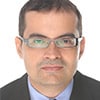Oct 06, 2020
Singapore’s younger healthcare professionals resilient despite COVID-19, yet face hurdles in driving change
Singapore – Royal Philips (NYSE: PHG, AEX: PHIA), a global leader in health technology, today announced findings from its study of 15 countries, the Future Health Index. It reveals the dedication and commitment of Singapore’s younger healthcare professionals to improve healthcare amidst COVID-19, and puts the spotlight on experiences and challenges that call for greater change within healthcare.
Now in its fifth year, this year’s survey is the first global survey of its kind on younger generation of healthcare professionals under the age of 40. The Future Health Index (FHI) 2020 report: ‘The age of opportunity: Empowering the next generation to transform healthcare’, paints a realistic picture of the state of healthcare systems on the eve of the COVID-19 crisis, covering nearly 3,000 respondents across 15 countries, including 100 in Singapore. This puts the spotlight on local younger healthcare professionals, who will bear the responsibility of charting Singapore’s future healthcare needs. The findings reveal an exceptional attitude and belief in the work they do vis-à-vis their peers in the other countries surveyed, gaps between medical training and actual practice, and their optimistic outlook for healthcare’s digital future. Based on a follow up surveyi months into the pandemic, these perspectives were further strengthened by their experiences tackling COVID-19 in the past months. The Future Health Index 2020 report identifies three core themes and critical findings:
Singapore’s younger doctors are more dedicated and firm believers in technology At the onset of COVID-19, 81% of Singapore’s younger healthcare professionals said they are satisfied with their work, despite seeing more patients per week (116) than their peers in the United States (99) or Australia (76). Despite higher patient volumes, just 4% say work-related stress have made them consider leaving the profession, compared to 34% of those across the 15 countries surveyed, and those in the United States of America (46%) and Australia (22%). Months into COVID-19, younger doctors here remain committed and positive – with the experiences and lessons during this period leaving them with a deeper feeling of purpose at work (57%, vs 39% average of the five countries surveyed) and a greater appreciation from patients (64%, vs 47% average of the five countries surveyed). Notwithstanding their experiences working during the COVID-19 pandemic, 68% of younger doctors say they are more likely to stay in medicine, compared to countries like the United States of America (13%), Germany (23%), and China (50%). With Singapore’s focus on and investments in digitalizing healthcare, younger healthcare professionals here are convinced of the potential of data and technology to improve their own work experience and that of their patients (92%, vs 74% of all countries surveyed). They also see benefits of technologies such as artificial intelligence (AI) and telehealth to transform healthcare, particularly during COVID-19. Almost all (97% vs. 81% average of all countries surveyed) agree that the right digital health technologies have the potential to reduce their workload, while 92% say they will improve patients’ experiences (vs.74% average of all countries surveyed), and 83% say adopting them could help decrease their stress levels (vs. 67% average of all countries surveyed).
Gaps persist in career expectations and experiences of Singapore’s younger doctors Despite their dedication to their patients and firm belief in the work they do, Singapore’s younger healthcare professionals are concerned about the skills gaps they face, and a shortfall in career reality compared to their expectations during their medical education (34%). Work-related stress, potentially leading to burnout, are also a reality for 82% younger healthcare professionals here, which could be impacted by the higher patient volumes they see per week. Alongside the digitalization of healthcare, younger healthcare professionals also feel underprepared when dealing with data. Around half (47%) say their medical education prepared them a little or not at all for data-related aspects of their jobs such as analysis and interpretation. However, most (67%) say they receive continuous training in this area in their hospital and practice, in response to closing the data-related skills gaps. Over three-quarters (79%) of our younger healthcare professionals believe they can drive change in how their hospital is changed or managed. Furthermore, the decisions made by non-medical stakeholders were noted to negatively impact 86% of Singapore’s younger healthcare professionals, affecting their overall job satisfaction. Beyond the present, many still worry about not being able to cope with the evolving needs of healthcare practice. Increased administration burdens, such as documenting electronic medical records and increased litigation/legal exposure, are among the chief concerns of younger healthcare professionals for their career here (43% and 44% respectively).
Empowering Singapore’s younger healthcare professionals Despite the challenges faced, the Future Health Index also identified a clear demand among this generation of younger healthcare professionals for a work environment that fosters collaboration and offers flexibility. Chief among these is creating a supportive environment and embracing technology to alleviate burdens and drive engagement. Key workplace factors important to Singapore’s younger healthcare professionals when choosing where to work include having access to the latest medical equipment and technology (79%), professional autonomy (78%), a collaborative culture (72%), and support of work-life balance (73%). “Younger healthcare professionals today shoulder the responsibility of transforming the future of healthcare, yet many still feel their views are unheard, experience hurdles in non-clinical aspects in practice, and are subject to stress as a result of their tireless dedication to caring for patients,” said Caroline Clarke, Market Leader, Philips ASEAN Pacific. “COVID-19 has revealed the gaps and opportunities for transformative healthcare change. Chief among them is nurturing and providing adequate support, platforms and adoption of digital technologies to empower healthcare professionals to act now for a better healthcare future.” Since 2016, Philips has conducted original research to help determine the readiness of countries to address global health challenges and build efficient and effective healthcare systems. For details on the Future Health Index methodology and to access the 2020 report in its entirety, including the Future Health Index Insights: COVID-19 and Young Healthcare Professionals research, visit the Future Health Index site.
1The Future Health Index Insights: COVID-19 and Younger Healthcare Professionals survey supplements the main Future Health Index 2020 report, capturing feedback from 500 doctors under the age of 40 in five countries: Singapore, the United States of America, China, France and Germany. The findings reveal how the COVID-19 pandemic has affected the attitudes and experiences of younger doctors, and how they believe the healthcare industry should change in response.
About Royal Philips
Royal Philips (NYSE: PHG, AEX: PHIA) is a leading health technology company focused on improving people's health and enabling better outcomes across the health continuum from healthy living and prevention, to diagnosis, treatment and home care. Philips leverages advanced technology and deep clinical and consumer insights to deliver integrated solutions. Headquartered in the Netherlands, the company is a leader in diagnostic imaging, image-guided therapy, patient monitoring and health informatics, as well as in consumer health and home care. Philips generated 2019 sales of EUR 19.5 billion and employs approximately 81,000 employees with sales and services in more than 100 countries. News about Philips can be found at www.philips.com/newscenter
Topics
Contacts

Sheo S. Rai
Senior Manager
Brand and Communications
Philips ASEAN Pacific
Media assets
| Philips FHI 2020 study reveals experiences, challenges, opportunities for younger healthcare professionals |








